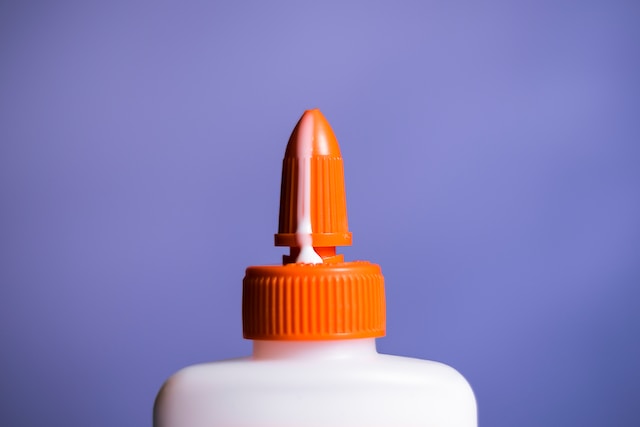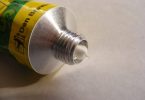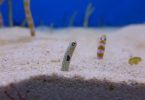Table of Contents
Super glue is a popular adhesive that is used for a variety of purposes, including in aquariums. However, aquarium enthusiasts may wonder whether super glue is safe for their aquatic pets and plants. The short answer is yes, super glue is generally safe for aquariums, as long as it is used properly.
When used correctly, super glue can be a useful tool for aquascaping and repairing aquarium decorations. It can create a strong bond between materials, making it ideal for attaching live plants, rocks, and other decor to the substrate or to each other.
However, it is important to note that not all super glues are created equal, and some may contain additives or chemicals that could be harmful to aquatic life. Therefore, it is important to choose a brand that is specifically labeled as aquarium-safe.
What is Super Glue?
Super glue, also known as cyanoacrylate glue, is a type of adhesive that is commonly used in various applications. It is a fast-acting glue that dries quickly and creates a strong bond between two surfaces.
Super glue is made up of a chemical compound called cyanoacrylate, which is a type of acrylic resin. When exposed to moisture, this resin polymerizes and forms a strong bond between the two surfaces it is applied to.
Super glue is available in different forms, including liquid and gel. The gel form is thicker and easier to control, making it ideal for vertical surfaces and intricate applications.
While super glue is commonly used in household repairs, it is also safe to use in aquariums. When dry and set, most types of super glue are safe to use in aquariums.
However, it is important to use the right type of super glue and follow the correct application method to ensure the safety of aquatic life.
Aquarium Safety
Aquariums are a beautiful addition to any home or office, and many people enjoy keeping fish and other aquatic creatures as pets.
When it comes to maintaining an aquarium, one of the most important aspects is ensuring that everything is safe for the inhabitants.
This includes the type of glue used to repair or attach items in the aquarium. Super glue is a popular choice for aquarium enthusiasts, but is it really safe to use in this environment?
Why is Super Glue Used in Aquariums?
Super glue, also known as cyanoacrylate glue, is a popular choice for aquarium enthusiasts because it is easy to use and creates a strong bond.
It is commonly used to attach plants or coral to rocks or other surfaces, to fix broken ornaments, or to seal small leaks in the aquarium. When used correctly, super glue can be a safe and effective solution for aquarium repairs.
Risks of Using Super Glue in Aquariums
While super glue is generally safe for aquarium use, there are some risks to be aware of. One of the main concerns is that the glue can release toxins into the water if it is not fully cured before being submerged.
This can be harmful to the fish and other aquatic creatures in the tank. To avoid this, it is important to allow the glue to dry completely before placing the item in the aquarium.
Another risk of using super glue in aquariums is accidental exposure. If the glue comes into contact with skin or eyes, it can cause irritation or even chemical burns. To avoid this, it is recommended to wear gloves and safety goggles when handling super glue.
Overall, super glue can be a safe and effective solution for aquarium repairs when used correctly. However, it is important to be aware of the risks and take the necessary precautions to ensure the safety of the aquarium inhabitants.
Types of Super Glue
There are many types of super glue available in the market, but not all of them are safe for use in aquariums. Here are two types of super glue that are safe to use in aquariums:
Cyanoacrylate Glue
Cyanoacrylate glue, also known as CA glue or super glue, is a popular adhesive used in aquariums. It is safe for use in aquariums because it becomes completely inert when wet.
The main active ingredient of the glue is cyanoacrylate, which is an acrylic resin. When in contact with water, it forms strong and stable bonds. Cyanoacrylate is by definition an aquarium safe glue, as water accelerates the curing process.
Epoxy Glue
Epoxy glue is another type of adhesive that is safe to use in aquariums. It is a two-part adhesive that consists of a resin and a hardener.
When mixed together, they form a strong and durable bond. Epoxy glue is ideal for use in aquariums because it creates a watertight seal and is resistant to water and chemicals.
In summary, cyanoacrylate glue and epoxy glue are safe to use in aquariums. However, it is important to use them correctly and follow the manufacturer’s instructions. It is also important to choose a brand that is specifically labeled as aquarium safe.
Using Super Glue in Aquariums
When it comes to using super glue in aquariums, there are a few things to keep in mind. Here are some tips to help you use super glue safely and effectively in your aquarium.
Preparation
Before using super glue in your aquarium, it’s important to make sure that you have everything you need on hand. Here are some things to consider:
- Choose the right type of super glue: Look for a gel-based super glue that is labeled as aquarium-safe. Avoid using regular super glue as it may contain additives or chemicals that could harm your aquatic life.
- Clean the area: Make sure the area you plan to apply the super glue to is clean and dry. Use a clean cloth or paper towel to remove any debris or moisture.
- Have a plan: Decide exactly where you want to apply the super glue before you start. This will help you work quickly and avoid making mistakes.
Application
When applying super glue in your aquarium, it’s important to be careful and precise. Here are some tips to help you apply the glue correctly:
- Apply a small amount: Use a small amount of super glue, as a little goes a long way. Apply the glue in small dots or lines, rather than large globs.
- Work quickly: Super glue dries very quickly, so you’ll need to work fast. Apply the glue and then immediately press the two surfaces together.
- Be careful: Make sure you don’t get any super glue on your skin or in your eyes. If you do, rinse the affected area with water immediately.
Curing Time
After applying super glue in your aquarium, it’s important to give it time to cure. Here’s what you need to know:
- Wait at least 24 hours: Super glue typically takes 24 hours to fully cure, so avoid disturbing the glued area during this time.
- Test the bond: Once the glue has cured, test the bond by gently pulling on the glued surfaces. If they come apart easily, you may need to reapply the glue.
By following these tips, you can safely and effectively use super glue in your aquarium. Just remember to choose the right type of glue, prepare the area carefully, apply the glue quickly and carefully, and give it time to cure before disturbing the glued area.
Alternatives to Super Glue
When it comes to fixing items in your aquarium, super glue may not always be the best option. Luckily, there are several alternatives that are safe for use in aquariums.
Aquarium-Safe Adhesives
Aquarium-safe adhesives are a great alternative to super glue. These adhesives are specifically designed for use in aquariums and are non-toxic to fish and other aquatic life. Some popular aquarium-safe adhesives include:
- Silicone adhesive: Silicone adhesive is a popular choice for aquarium hobbyists. It is waterproof, flexible, and can be used to bond a variety of materials. It is also safe for use in both freshwater and saltwater aquariums.
- Epoxy adhesive: Epoxy adhesive is another popular choice for aquarium hobbyists. It is a two-part adhesive that creates a strong, permanent bond. It is safe for use in both freshwater and saltwater aquariums.
- Aquarium sealant: Aquarium sealant is a silicone-based adhesive that is specifically designed for use in aquariums. It is safe for use in both freshwater and saltwater aquariums and can be used to seal leaks and bond materials.
Mechanical Fasteners
Mechanical fasteners are another alternative to super glue. These fasteners do not require any adhesive and can be used to hold materials together. Some popular mechanical fasteners include:
- Nuts and bolts: Nuts and bolts can be used to hold materials together in your aquarium. They are especially useful for attaching heavy items like rocks and driftwood.
- Screws: Screws can also be used to hold materials together in your aquarium. They are especially useful for attaching items to the walls of your aquarium.
- Clamps: Clamps can be used to hold materials together while the adhesive dries. They are especially useful for bonding large items like rocks and driftwood.
Overall, there are several alternatives to super glue that are safe for use in aquariums. Aquarium-safe adhesives and mechanical fasteners are both great options that can be used to fix items in your aquarium without harming your fish and other aquatic life.
Conclusion
In conclusion, it is safe to use super glue in aquariums as long as you choose an aquarium-safe super glue. Gel glue is best for aquascaping or repairs to ornaments rather than repairs to aquariums. Superglue won’t create a watertight seal like a silicone sealant but gives a strong and instant bond.
When using super glue in aquariums, it is important to follow a few simple guidelines. First, use a small amount and allow the repair to dry completely before adding water back into the tank.
Second, avoid using super glue on live fish or plants, as it can harm them. Third, make sure to choose a super glue that is free of harmful chemicals and additives.
Overall, super glue can be a useful tool for aquarium hobbyists, but it should be used with caution and care. By following these guidelines and selecting an aquarium-safe super glue, hobbyists can use super glue to create beautiful aquascapes and make minor repairs to their aquariums without risking harm to their fish or plants.







